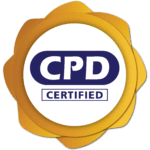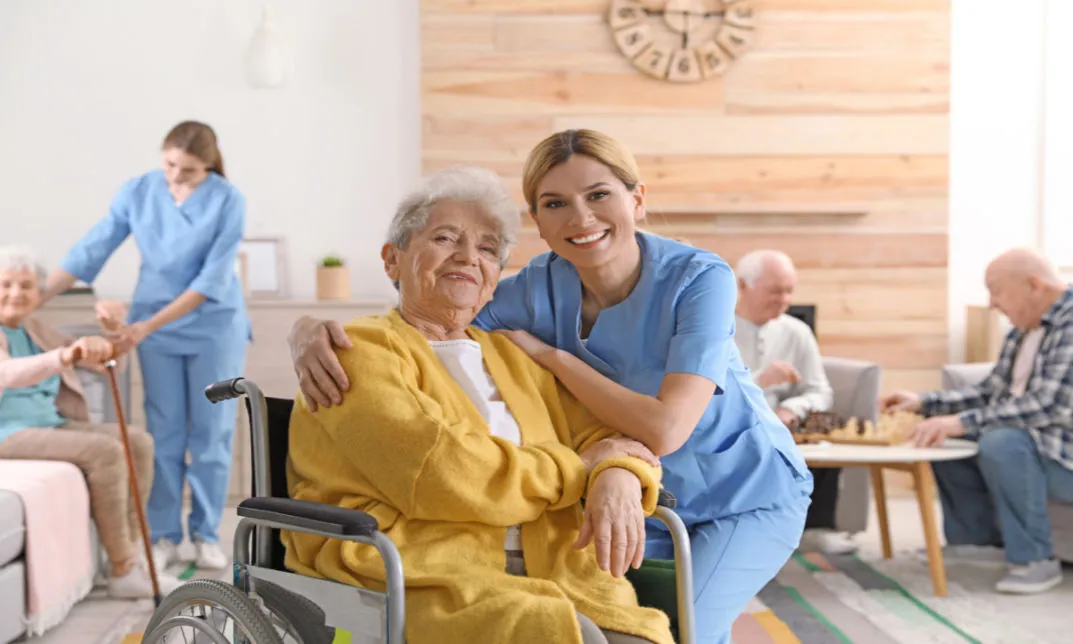



Do you want to feel more prepared and confident in your healthcare role? If so, this Care Certificate online course will give you the skills and knowledge you need to succeed!
Care Certificate Course Overview
Many healthcare workers say that training helps them improve the care they provide. That is why our course is here to provide you with the skills and knowledge you need to be prepared for your career in healthcare!
In this course, you will learn everything from patient safety to communication. You will also gain a thorough knowledge of safeguarding, infection control, and handling information correctly. This way, with this course, you will be able to build the skills you need to work safely and professionally.
So, why wait? Enrol in our Care Certificate online course today and start your journey toward a successful healthcare career!
Benefits of the Care Certificate Course
Become Ready for Your Job:
By learning what to expect at work, you will be able to make your job much easier. As a result, you will feel more in control and prepared for daily tasks.
Stronger Teamwork Skills:
Good communication with colleagues will help you avoid mistakes and confusion. Therefore, it will make working together with others much smoother and more effective.
Bette Chances of Getting Hired:
Employers will prefer people who have a CPD care certificate. Hence, taking this course and earning the certificate can help you stand out in job applications.
Improve Patient Care:
This course will teach you the right way to treat and support people. So, you will be able to provide safe and respectful care.
Learning Goals for the Care Certificate Online Course
You will be able to know about 15 standards of the care certificate and:
- Grasp benefits of Care Certificate
- increased knowledge about Care sector
- Increased career possibilities
- Improving Skills of communication
- Knowledge of Care industry
- Understand your role
- Your personal development
- Duty of care
- Equality and diversity
- Work in a person centred way
- Communication
- Privacy and dignity
- Fluids and nutrition
- Awareness of mental health, dementia and learning disabilities
- Safeguarding adults
- Safeguarding children
- Basic life support
- Health and safety
- Handling information
- Infection prevention and control
Who is the Care Certificate Online Course for?
This Care Certificate online course is suitable for people at different stages of their healthcare journey. However, it may be more relevant to:
- Support Workers
- New Healthcare Assistants
- Volunteers
- Caregivers
Reasons for choosing our Care Certificate Course
- Self-paced flexibility: Learn at your own pace, from anywhere you prefer.
- Quality assurance: One of the best Care Certificate online courses in the UK.
- Comprehensive study materials: Easily grasp the content with high-quality resources.
- Expert-developed curriculum: Gain insights from industry professionals who crafted the course.
- Assess your knowledge: Evaluate your progress through module-based multiple-choice quizzes.
- Immediate assessment results: Receive automated feedback and results instantly.
- 24/7 support: Get assistance via live chat, phone, or email whenever needed.
- Recognise your achievement: Obtain a free PDF certificate upon course completion.
Requirements for Admission
This course does not need any specific credentials. So, anyone can join regardless of their background or expertise.
However, to ensure a successful and engaging experience, we do have a few requirements for students who wish to enrol:
- Good command of the English language: Communication is key. Therefore, a strong grasp of English will enable you to engage with the course material and actively participate in discussions.
- Enthusiasm and self-drive: Passion and motivation are vital for successful learning. So, bring your enthusiasm and dive into the course content with a determined mindset.
- Basic computer knowledge: In today's digital age, having basic computer skills is essential. However, don't worry if you're not a tech expert. A fundamental understanding of computers and navigating online platforms will be enough.
- Age requirement: Our Course is available to learners of all ages. However, a minimum age of 16 is required to ensure a suitable learning environment for everyone.
Assessment Procedure
You will get automated MCQ quizzes after finishing each module of this course. To go to the next module, you must finish the quiz activity and score at least 60%. You will be eligible to obtain certification once you have completed all of the courses in this manner.
Certification
The Unified Course will deliver you a Certificate of Completion once you complete this MCQ exam. It will serve as documentation of your considerable professional progress. The certificate is in PDF format and may be downloaded for free. On request, a printed version is also available. It will also be sent to you through courier for £13.99.
Career Path
- Healthcare Assistant – £19,000 to £25,000 per year
- Support Worker – £18,000 to £26,000 per year
- Care Assistant – £18,000 to £24,000 per year
- Senior Care Worker – £22,000 to £30,000 per year
- Rehabilitation Assistant – £20,000 to £28,000 per year
Curriculum
-
- Understand Your Role 00:20:00
- Module 01 Final Quiz – Understand Your Role 00:10:00
-
- Developing A Personal Development Plan 00:20:00
- Module 02 Final Quiz – Developing A Personal Development Plan 00:10:00
- Duty of Care 00:18:00
- Module 03 Final Quiz – Duty of Care 00:10:00
- Work in a Person-Centred Way 00:28:00
- Module 05 Final Quiz – Work in a Person-Centred Way 00:10:00
- Privacy and Dignity 00:17:00
- Module 07 Final Quiz – Privacy and Dignity 00:10:00
- Mental Health, Dementia and Learning Disabilities 00:44:00
- Module 09 Final Quiz – Mental Health, Dementia and Learning Disabilities 00:10:00
- Safeguarding Children 00:36:00
- Module 11 Final Quiz – Safeguarding Children 00:10:00
- Health and Safety 00:43:00
- Module 13 Final Quiz – Health and Safety 00:10:00
- Infection Prevention and Control 00:26:00
- Module 15 Final Quiz – Infection Prevention and Control 00:10:00
Price
Study Method
Online
Free Certificate
CPD Certified
Duration
9 hours, 24 minutes




